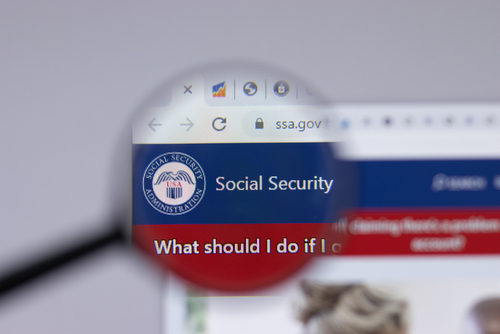Marriage Is a Human Right; The Recent SSA Reversal Shows Why

We are social creatures, and marriage is strongly linked to our need for family, community, and belonging. It also provides us with a means to grapple with our mortality. The love that we share with a lifelong partner is a bond that gives us meaning that transcends our physical bodies. Marriage is a beautiful idea. Entering a marriage is a gateway into a richer and more fulfilling human experience that everyone should have a right to.
One view of history asserts that the continual change of human society is a product of our ability to tell stories. After all, we are far from as fast or as strong as many of our counterparts in the animal kingdom. Some argue that we were able to thrive in harsh conditions due to our creation of shared belief systems to organize around. We certainly see evidence of this perspective in mythology, religion, and tradition. Perhaps our power to influence the physical world is rooted in our ability to find common ground by reaching for something greater than ourselves.
Should one subscribe to this particular view of the human story, one can likely point to marriage as one of humanity’s most enduring institutions. The idea of marriage varies across cultures, but it has undoubtedly played a role in how societies have developed.
How Power Structures Have Misused Marriage
While the institution of marriage is integral to our sense of meaning, it also has functional implications on our material world and the way we live — oftentimes to cynical ends. Marriage has been employed as a lever of power and a means of resource allocation. In the context of an unequal society or institution, the beauty of marriage can sadly be corrupted into a mechanism of control and exclusion.
Our perception of time is easily distorted. This is exhibited in the expansion of marriage rights to same-sex couples. Today, marriage equality is the law of the land. However, the political consensus around this issue was radically different less than a generation ago. In 1996, then-president Bill Clinton signed the Defense of Marriage Act into law. This gave states the right to outlaw marriages between loving members of the same sex. Not even a decade later, President George W. Bush campaigned in favor of a constitutional amendment that would have made same-sex marriages unconstitutional.
Barring same-sex couples from marrying robbed millions of a deserved sense of fulfillment, happiness, and dignity. Additionally, it had serious economic consequences.
Survivor’s Benefits for Same-Sex Couples Highlight Why Marriage is a Human Right
In the United States, a surviving spouse is entitled to the Social Security benefits of the deceased. Since same-sex marriage wasn’t legalized across the country until 2015, millions were excluded from receiving the benefits their partner left behind. The result placed undue hardship upon many LGBTQ Americans in retirement. Limiting the institution of marriage to heterosexual couples produced ongoing economic inequality. Exclusion from marriage had the material result of degrading the quality of life for millions of Americans.
Fortunately, the Social Security Administration has finally updated its policy to reflect the law. Nonprofit group Lambda Legal recently won two class-action lawsuits against the SAA on behalf of surviving spouses for same-sex couples. While they were filed in 2018, the lawsuits had been held up due to appeals filed during the Trump administration. While access to survivor’s benefits for same-sex couples is long overdue, this recent reversal represents a massive win for marriage equality and human rights everywhere.
The lesson here is two-fold. The fight for human rights serves both body and spirit. We must ensure that we work toward equality in terms of physical well-being. We must also keep in mind that our traditions are important. Marriage is more than a symbol; it is a means to claim, express, and fulfill our humanity making marriage a human right.














